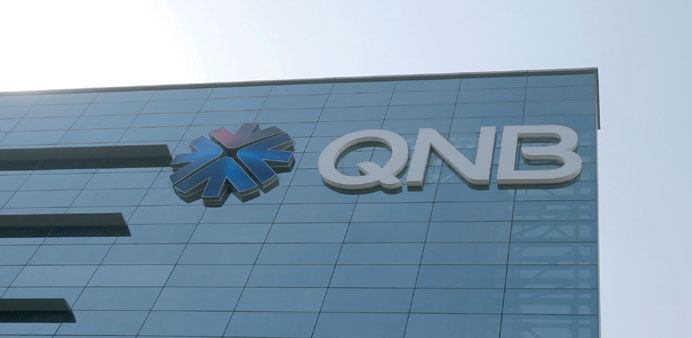Global credit rating agency Fitch has affirmed its ratings on seven Qatari lenders with “stable” outlook.
The lenders are QNB (‘A ‘/’F1’/’a’), Commercialbank (‘A’/’F1’/’bbb’), Qatar Islamic Bank (‘A’/’F1’/’bbb’), Doha Bank (‘A’/’F1’/’bbb’), Ahlibank (‘A-’/’F2’/’bbb-’), al khaliji (‘A-’/’F2’/’bb ‘), and International Islamic (‘A-’/’F2’/’bb ‘).
Fitch’s view of support is based on a strong history of sovereign support including measures to boost capital, as well as asset purchases, as clearly demonstrated in recent years. Support is the primary factor driving the IDRs (issuer default ratings).
Qatari banks’ IDRs, support ratings and support rating floors (SRFs) reflect the extremely high probability of support available from the Qatari authorities if needed, according to the rating agency.
Fitch’s opinion of support is based on the ability and willingness of Qatar to support the banking sector. The government owns stakes in all the banks following capital injections into the banking system between 2009 and the first quarter of 2011.
Additional supportive actions taken by the Qatari authorities included direct asset purchases (both loans and equities) in 2009. The sovereign’s capacity to support the banking system is sustained by its sovereign wealth funds and on-going revenues mostly from its hydrocarbon production.
The support ratings and SRFs assigned to each bank reflect differences in the systemic importance, franchise, market share and government ownership of each bank
“Given Qatar’s robust economy and the authorities’ strong track record of support for local banks, downside pressure is considered low,” Fitch said.
Qatari banks’ viability ratings reflect their strong capital base and healthy performance, the strong economic environment supported by public sector initiatives, and stable core funding and liquidity.
These strengths are counterbalanced by continued risk with respect to concentrations on both sides of the balance sheet, deteriorating restructured and past due loans at some banks, rapid credit growth and dependency on government-related spending and Qatar’s undiversified economy.
QNB’s VR reflects its dominant franchise in Qatar, strong financial metrics, specifically its revenue generation capability, robust profitability, low non-performing loans (NPL) ratio and solid liquidity and capital position.
Commercial Banks VR reflects the bank’s established commercial franchise, strong capitalisation and consistently solid financial performance and low NPL ratio.
DB’s VR reflects its robust earnings, stable asset quality, improved capital ratios and the expectation of an additional 25% increase in share capital the bank intends to raise and its established franchise in Qatar.
QIB’s VR reflects its healthy but declining capitalisation, steady core earnings, solid stock of liquid assets, leading Islamic franchise and the bank’s management which is recognising some of the bank’s asset quality issues through increased impairment charges
Ahlibank’s VR reflects the bank’s solid profitability, satisfactory liquidity and sound capitalisation; while al khaliji’s VR is constrained by a relatively small franchise and reflects the concentrations on both sides of the balance sheet, moderate profitability and short track record.
Fitch also said International Islamic’s VR is constrained by a relatively small and undiversified franchise combined with high sector and single name concentrations in financing.

